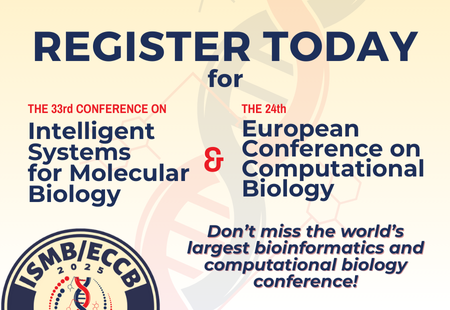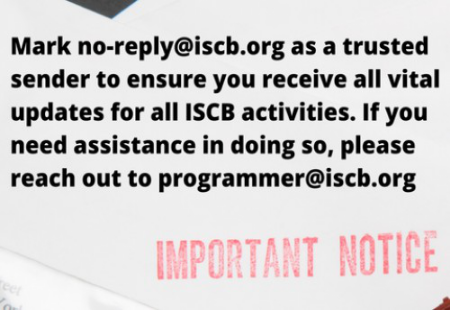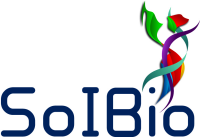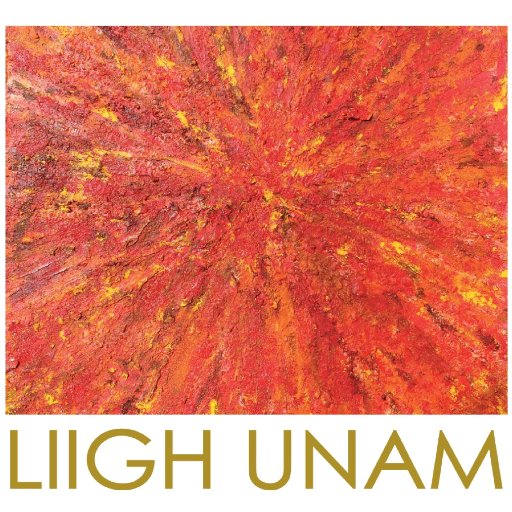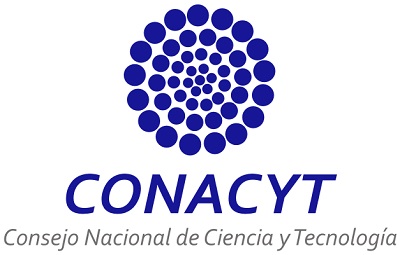Workshops and Tutorials
Workshops and tutorials will take place online on October 22nd to 27th
Workshop: Train the Trainer/Entrenamiento de Instructores/Treine o Treinador
Trainers
María Bernardi, CABANA Project
Patricia Carvajal López, CABANA Project
Piraveen Gopalasingam, EMBL-EBI
Mindy Muñoz, CABANA Project
9:00AM - 1:00PM Mexican Central Time (CT) on October 22 & 23, 2020
Capacity: 20 (Español), 20 (Português)
This workshop will provide tools, skills, guidance, and tips for developing and providing training from other trainers with the theoretical and practical understanding and adaptation to the new challenges that we are facing. Participants will explore a variety of methods to enable and encourage learning, examine the requirements for a successful course, and obtain appropriate feedback.
Depending on the number and background of participants the workshop will be held in Spanish and/or Portuguese, though all instructors are also fluent in English.
Maximum capacity: Minimum number of participants 6 per language group. Maximum: 20.
- top -
Tutorial: Discovery and phylogenetic characterization of animal viruses from metagenomic samples
Trainers
Daniel Blanco, Icahn School of Medicine at Mount Sinai
Nicholas Meyerson, University of Colorado Boulder
Miriam Jetzabel Bravo-López, Laboratorio Internacional de Investigación sobre el Genoma Humano
Axel Guzmán-Solís, Cornell University
Qing Yang, University of Colorado Boulder
9:30AM - 1:30PM Mexican Central Time (CT) on October 24 & 25, 2020
Capacity: 30
Bats notoriously harbor a large amount of viruses, many of which have the potential to cross the species barrier and cause disease in humans. In this workshop, we will use high-throughput sequencing datasets from bat specimens to carry out de novo assembly of coronavirus genomes. We will then conduct phylogenetic analyses to classify assembled genomes and carry out evolutionary analyses to identify specific regions within viruses that are rapidly evolving due to positive selection.
- top -
Workshop: Machine Learning in Bioinformatics using Galaxy
Trainers
Björn Grüning, University of Freiburg
Alireza Khanteymoori, University of Freiburg
Anup Kumar, University of Freiburg
9:00AM - 5:00PM Mexican Central Time (CT) on October 26, 2020
Capacity: 30
This workshop will be a one-day event, including six sessions and during which we will train researchers to use Galaxy for machine learning analysis. The first session will provide an introduction to Galaxy. Galaxy is a scientific platform that helps scientists to analyse data without any programming skills. To analyse data, workflows can be created to make the analyses reproducible and shareable. In the second session, basic concepts in machine learning will be introduced. The next three sessions will serve as a hands-one sessions to follow training tutorials with case studies to see how classification algorithms, regression models and unsupervised learning methods in Galaxy can be used to solve real-world problems. In the last session, we will introduce feature selection and hyper parameter optimization methods in Galaxy and the workshop will be summing up at the end.
- top -
Workshop: Identification of disease-associated genetic variants from next-generation sequencing data
Trainers
Carla Daniela Robels Espinoza, Laboratorio Internacional de Investigación sobre el Genoma Humano and Wellcome Sanger Institute
Carolina Castañeda-Garcia, Laboratorio Internacional de Investigación sobre el Genoma Humano
Patricia Basurto-Lozada, Laboratorio Internacional de Investigación sobre el Genoma Humano
Estefanía Vázquez-Cruz, Laboratorio Internacional de Investigación sobre el Genoma Humano
10:00AM - 2:00PM Mexican Central Time (CT) on October 26 & 27, 202
Capacity: 25
Learn how to analyze NGS data to identify the genetic variants behind your phenotype of interest! This course will cover the analysis workflow behind variant discovery and association and will include both theoretical and practical sessions, focusing on quality control and variant calling methodologies.
- top -
Workshop: Management and good practices in the assembly of bacterial, archaea and fungal genomes
Trainers
Karla Ruiz, Winter Genomics
Violeta Larios, Winter Genomics
M. en C. Rogelio Reyes, Winter Genomics
9:00AM - 1:00PM Mexican Central Time (CT) on October 27, 2020
Capacity: 15
In this workshop you will gain knowledge and develop basic programming skills for genome assembly using Linux. For the practical part, data analysis will be done using raw files. You will learn which are the main tools used for data assembly like k-mer, ABySS and Spades and will practice how to use some of them. Finally, you will be able to identify the best approaches for data management and its analysis. It is not necessary to have programming skills.
- top -
Workshop: Introduction to structural bioinformatics for evolutionary analysis
Trainers
Claudia Alvarez Carreno, Georgia Institute of Technology
Alma Carolina Sanchez Rocha, Charles University
1:00PM - 5:00PM Mexican Central Time (CT) on October 27, 2020
Capacity: 50
Three-dimensional structure analysis can provide a biophysical understanding of how proteins work and evolve. Most evolutionary studies are based solely on sequence data. However, point mutations and sequence rearrangements have implications for protein structure. This tutorial will familiarize participants with straightforward bioinformatics protocols for combining evolutionary information and biophysical understanding of proteins. We will provide cutting edge bioinformatics algorithms to analyze both folded protein domains and intrinsically disordered proteins and regions.
- top -
Workshop: How to annotate protein-coding genes in genomic sequences
Trainer
Thomas Bruna, Georgia Institute of Technology
Alexandre Lomsadze, Georgia Institute of Technology
Mark Borodovsky, Georgia Institute of Technology
1:00PM - 5:00PM Mexican Central Time (CT) on October 27, 2020
Capacity: 20
In the gene finding tutorial, we will present a line of automatic gene finders for all types of genomes (prokaryotic, eukaryotic and metagenomes) with explanation of algorithmic concepts, choice of default parameters, input and output formats - along with demonstrations - and a short review of typical errors.
http://exon.gatech.edu/GeneMark/
- top -
Keynote Speakers
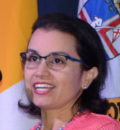 |
Monica Marie Arroyo, PhD
Puerto Rico
|
Claudia Carranza, PhD
Sacatepéquez, Guatemala
|
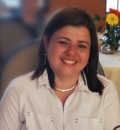 |
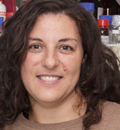 |
Lucia Chemes, PhD
Buenos Aires, Argentina |
Julio Collado-Vides, PhD
Morelox, México |
 |
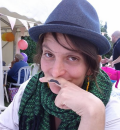 |
Alicia Mastretta-Yanes, PhD
CDMX, Mexico |
Alejandro Reyes Muñoz, PhD
Bogotá, Colombia |
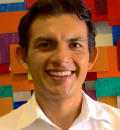 |
- top -
 Monica Marie Arroyo, PhD
Monica Marie Arroyo, PhD
Puerto Rico
Monica Marie Arroyo obtuvo un bachillerato en ciencias en bioquímica con concentración menor en química de la Universidad de Maine, Orono, y un doctorado en bioquímica, biología molecular y biofísica de la Universidad de Minnesota, Minneapolis. Luego hizo un postdoctorado en biquímica estructural en St Jude Children’s Research Hospital en Memphis. Tiene un Diplomado en Fundamentos de Bioética (144 horas) del Centro de Investigación Social Avanzada en Querétaro, México, así como varias certificaciones en educación virtual de la Universidad de California, Irvine, y la Universidad Central de Florida. Miembro de las prestigiosas sociedades de Honor Phi Kappa Phi y Sigma Xi, actualmente es catedrática asociada en el departamento de química de la PUCPR, Ponce. Del 2015-2019 hizo estancias de investigación en el laboratorio del Dr. Javier de Las Rivas en el Centro de Investigación del Cáncer en la Universidad de Salamanca, España.
Monica Marie Arroyo earned a Bachelor of Science in Biochemistry with a minor in Chemistry from the University of Maine, Orono, and a PhD in Biochemistry, Molecular Biology, and Biophysics from the University of Minnesota, Minneapolis. She did a postdoc in Structural Biology at St Jude Children's Research Hospital in Memphis. She has a Diploma in Fundamentals of Bioethics (144 hours) from the Center for Advanced Social Research in Querétaro, Mexico, as well as several certifications in virtual education from the University of California, Irvine, and the University of Central Florida. Member of the prestigious Honor Societies Phi Kappa Phi and Sigma Xi, she is currently an associate professor in Chemistry at Pontifical Catholic University of Puerto Rico, Ponce. From 2015-2019 she did research stays in the laboratory of Dr. Javier de Las Rivas at the Cancer Research Center at the University of Salamanca, Spain.
- top -
 Claudia Carranza, PhD
Claudia Carranza, PhD
Sacatepéquez, Guatemala
Title: Genomics in cancer
Claudia Carranza has a PhD in Genetics and Master in Bioethics. She has obtained many awards, as TWAS price for Young Scientists from developing Countries and a Developing Country travel award for presenting a research work at the Annual American Meeting of Human Genetics at Houston 2019. Her research focus in Cancer genetics, hereditary cancer syndromes and genetics of human diseases. She is Pioneer in the Human Genetic Research area in Guatemala and She started the first postgraduate education programs in the Country. She has published twelve international papers and participated with nineteen communications at international meetings.
- top -
 Lucia Chemes, PhD
Lucia Chemes, PhD
Buenos Aires, Argentina
Title: "Evolution of structural and functional features in intrinsically disordered proteins"
Independent Researcher (CONICET), Professor (UNSAM)
Head of the Protein Structure, Function and Plasticity Laboratory at IIBIO, UNSAM
Dr Chemes' main expertise is in the study of structure-function relationships in proteins, using both experimental and bioinformatics techniques. Their work focuses on small modular elements in proteins called “Linear Motifs” which are present within flexible, intrinsically disordered regions of proteins. They also study how protein flexibility contributes to functional outputs in disordered proteins. They focus our work on viral pathogenic proteins, which exploit disorder and linear motifs to hijack cell regulation. They recently became part of an international consortium dedicated to developing computational resources for intrinsically disordered proteins and contribute to bioinformatic databases such as ELM (Eukaryotic Linear Motif Database), Disprot (Disordered Proteins Database) and PED (Protein Ensembles Database). They work in close collaboration with international partners including Toby Gibson at the European Molecular Biology Laboratory (Heidelberg, Germany), Silvio Tosatto at University of Padova (Padova, Italy), Gary Daughdrill at University of South Florida (Tampa, USA), Pau Bernadó at CNRS (Montpellier, France) and Ignacio Sánchez (Protein Physiology Lab, FCEN-UBA).
She was trained as a Biologist at University of Buenos Aires (Undergraduate degree), later obtaining a Master in Science (M.Sc.) degree from Rockefeller University (New York, USA) and a PhD degree from University of Buenos Aires in 2010. During her postdoc period, she collaborated closely with Toby Gibson (EMBL) during several stays in his group. She currently lead a laboratory at the Institute for Biotechnological Investigations, UNSAM, Argentina. They are funded by Agencia Nacional de Promoción Científica y Tecnológica (Arg), Canadian Institutes of Health and Research (CIHR) and European Commission (Marie Curie RISE Horizon 2020 action).
- top -
 Julio Collado-Vides, PhD
Julio Collado-Vides, PhD
Morelos, México
Julio Collado-Vides obtained a B.Sc. in Basic Biomedical Research (1983), a M.Sc. in Physical Chemistry (1985) and a Ph.D. in Biomedical Research (Biomathematics) (1989) at the National Autonomous University of Mexico (UNAM). Upon graduation he spent three years in the laboratory of Dr. Boris Magasanik in Department of Biology at the Massachusetts Institute of Technology (MIT) with a postdoctoral Fellowship awarded by the Fogarty International Center. In 1992 he was recognized as a Fellow of the John Simon Guggenheim Foundation and became part of the Center of Nitrogen Fixation (CIFN) at the Morelos Campus of UNAM, in Cuernavaca, in a tenure track position.
He is a Professor at UNAM in the area of bioinformatics of regulation of gene expression in bacteria. His work has been recognized in Mexico and abroad. His main contributions include a grammatical model of gene regulation, the computational modeling of regulation of transcription initiation in Escherichia coli, contained in RegulonDB and a review of the basic concepts of transcriptional regulation published in Nature Reviews Genetics (2020). His focus on gene regulation has contributed to generating algorithms to predict operons, applying bioinformatic methods to predict promoters and binding sites, as well as analyzing the regulatory network and its global properties.
He contributed to the annotation of regulation of the complete E.coli genome published in 1997 in Science. He has more than 130 papers in international peer-reviewed journals as well as over 13 chapters in books, which have accumulated more than 15,000 citations (H index 45). Additionally, he is editor of the books “Integrative Approaches to Molecular Biology” eds. Collado-Vides J., Smith T. and Magasanik B. (1996), and “Gene Regulation and Metabolism: Post-Genomic Computational Approaches” eds. Collado-Vides J. and Hofestadt R. (2002), both published by MIT Press.
He is a regular member of the Mexican Academy of Science; he has also been President Founder of the Mexican Society of Genomics (2000), and was recognized with the National University Award in Natural Science Research 2004 and the Scopus Elsevier recognition for his highly cited publications in 2007. His laboratory is responsible for the Bioinformatics Mexican National Node EMBNET and he was appointed Director of the Center for Genomic Sciences from 2005 to 2009.
He has been a member of the Board of Directors of the International Society for Computational Biology, an “ISCB Distinguished Fellow” Class 2015, and received the National Award in Sciences and Arts (2011) the highest recognition by the Mexican government. Since 2018 he is an Adjunct Professor at the Department of Bioengineering at Boston University.
He has been an invited member for program committees of international conferences in his area, and an organizer of various international conferences. He has been a member of the Genomics, Computation and Technology (GCAT) study section of the National Institutes of Health (NIH) of the United States. He has also evaluated grant applications from the National Science Foundation, Human Frontiers, the German Human Genome Project and book proposals to the MIT Press amongst others. He is a member of the International E.coli Alliance since 2002.
Dr. Collado-Vides has been awarded with grants from DOE as co-responsible investigator, and is one of the few researchers in our country with grants awarded by NIH as PI (Principal Investigator). He was awarded with the Robert F. Kennedy Visiting Professorship of the Americas from Harvard University in 2007, and was invited to contribute to the inaugural section on Computational Biology of the Journal of Bacteriology, 2009. He was President founder of the Iberoamerican Society for Bioinformatics in 2009.
Dr. Collado-Vides has mentored several undergraduate and graduate students. Some of his former students and posdocs are now investigators at UNAM, Cuba, Canada, the US, France, Spain and Belgium. He has collaborated in the creation of the Undergraduate Program of Genomics at UNAM, where he participates in overseeing and teaching courses in bioinformatics. He has also coordinated courses addressed to the teachers of the UNAM’s National High school in an attempt to bring genomics to upper middle education. The international workshop of bioinformatics has offered bioinformatics training for more than 700 academics and students in Mexico over the years.
- top -
 Alicia Mastretta-Yanes, PhD
Alicia Mastretta-Yanes, PhD
CDMX, Mexico
Title: “Bioinformatics modern challenges: from genes to ecosystems”
Alicia Mastretta-Yanes studied biology at UNAM and performed her PhD on evolutionary biology at the University of East Anglia, UK. Currently she is a CONACYT Research Fellow at CONABIO, México. Her research focuses on the microevolutionary processes shaping Mexican biodiversity. This inclues from the effect of topography and past climate fluctuations, to the present implications of domestication and human managment. In 2020 she won a L'Oréal–UNESCO-AMC Fellowship for Women in Science. She likes plants, and keeps accumulating them at home, even if there is no more space. She is an external tutor at the Biological Sciences and Biomedical Sciences Postgrades at UNAM, where she also teaches bioinformatics for biologists.
- top -
 Alejandro Reyes Muñoz, PhD
Alejandro Reyes Muñoz, PhD
Bogotá, Colombia
Title: Uncovering the Colombian microbial diversity through metagenomics.
As a molecular microbiologist Dr. Muñoz have always been fascinated by the diversity and genomic evolution of microbes, and where to see that better than in the viral world, small biological entities with very high mutation capacity and adaptability. Since his PhD he started to inquire into the environmental reservoir of viruses, using metagenomics and NGS methods, together with the development of novel computational approaches for the analysis. It was possible to observed that more than 80% of the genomic diversity captured had no similarity to anything that has been previously sequenced. Since that moment they started to characterize the viral diversity associated to the human gut in different settings and cohorts almost always reaching similar percentages of unknowns.
Phages have an immense potential, they are efficient bacterial killers, with limited carrying capacity within their capsid, they only carry genes that are completely essential for their mission. Understanding their coding potential will open new doors to potential therapeutics and treatments. They have employed a good part of their recent years’ experience into understanding more of that genetic potential, designing methods to identify and characterize viral sequences from metagenomes and setting the standards for the description of novel metagenomic isolated viral genomes. More recently, he was chosen as one of the newest members of the International Committee for Taxonomy of Viruses (ICTV), this is the international organization in charge of deciding the naming and classification of viruses worldwide. Additionally, for the last 3 years he has been a Co-PI in the CABANA project, a UK lead project in collaboration with 6 countries in Latin America to strengthen bioinformatics capacities and training. As part of this project they have developed workshops, trained researchers and developed training capacities such as remote training giving us the capability of teaching whole semester courses with lecturers both in the UK and Colombia simultaneously.
- top -

